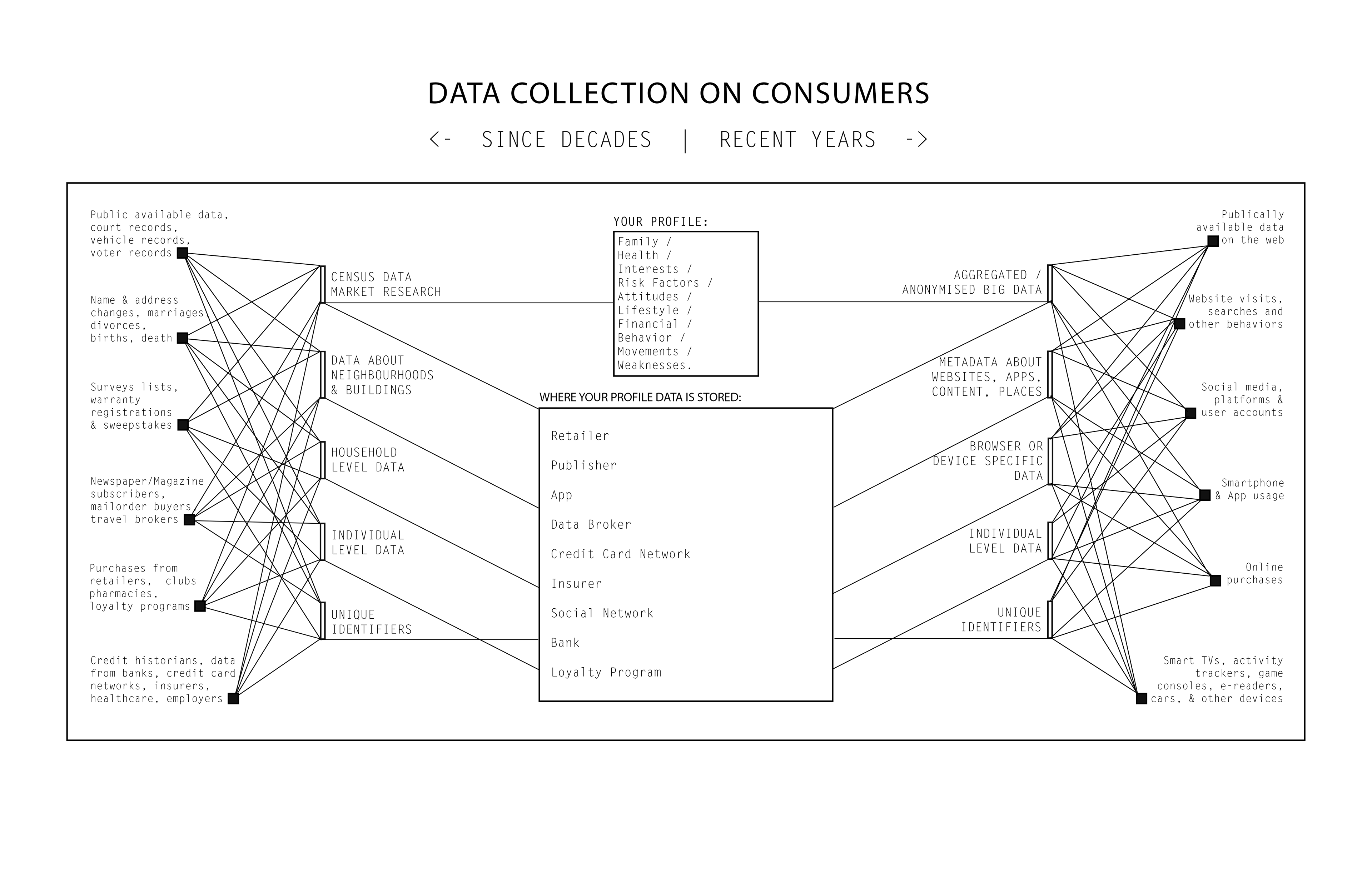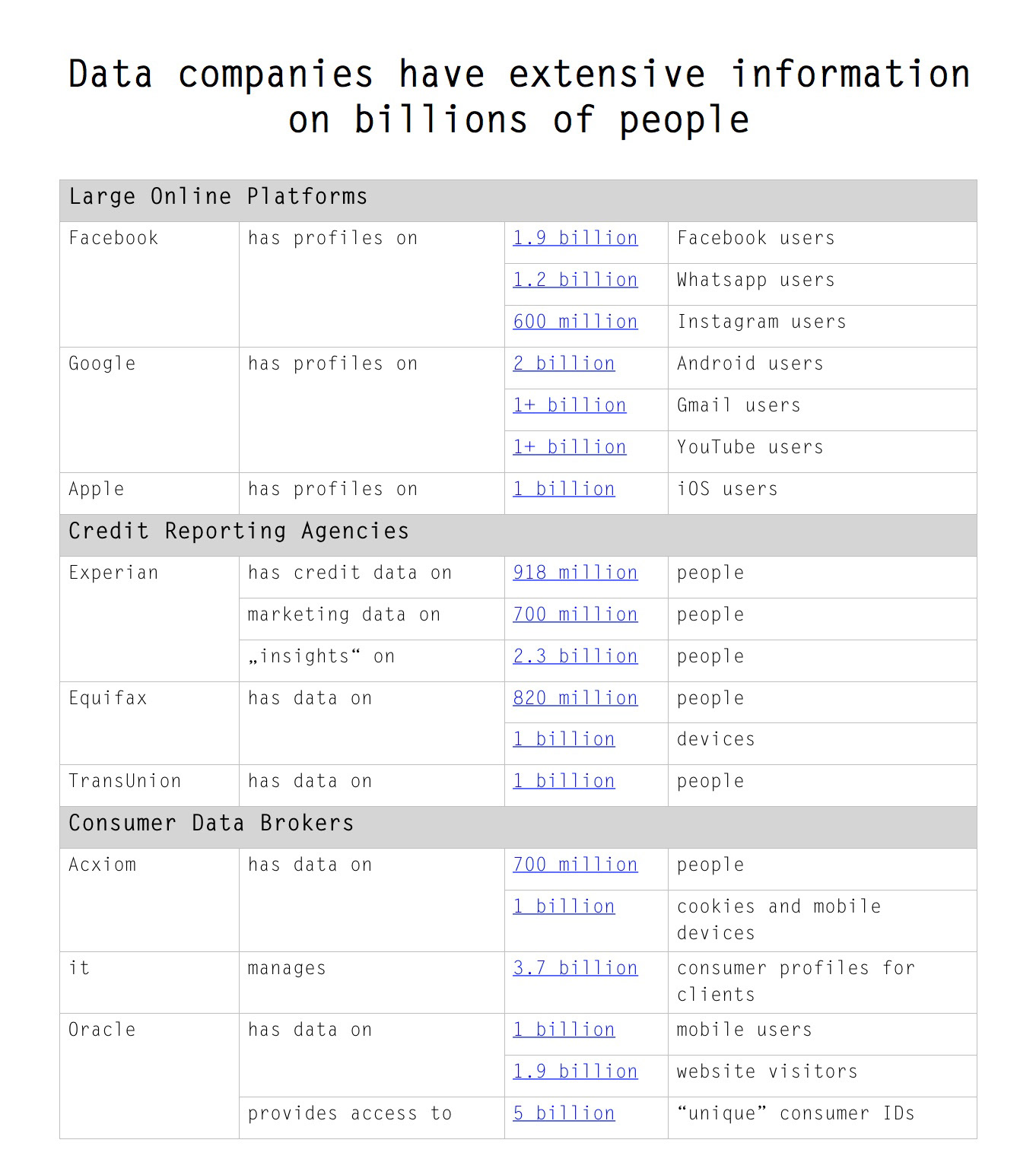SURVEILLANCE CAPITALISM
“The economic basis of the Internet.” - Maciej Cegłowski
Tim Berners-Lee, the creator of the World Wide Web, imagined the web to be a universal medium for sharing information undefined by commercial interest (Berners-Lee, 2011). However, since the 1990s, technological advancements and developments have been commercializing the web. Of significance are the Google monopoly of research browsers, the transformation in mobile communication, and the emergence of web.20 technologies (Barassi, 2015; Miller, 2016). Despite the potential promises of the web - of unprecedented possibilities for user engagement, creativity, cooperation - capitalist exploitation and corporate surveillance evolved (Mosco, 2005; Hindman, 2009; Morozov, 2012) Facilitated by the ubiquitous adoption of smartphones, the amount of data gathered from online and offline activities is extensive. This goes hand in hand with the widespread commercialization of online life, as major corporations have effectively ‘colonized’ the Internet.
Not limited to just online consumption, digital platforms also use social relations and networking apps as foundations for revenue. Of note are the technology and social media companies – Google, Facebook, Yahoo, Microsoft, and Twitter – which dominate the digital advertising market, accounting for 65% of all revenue from digital advertising in 2015, or $38.5 billion out of $59.6 billion (Mitchell, Holcombe, and Weisel, 2016). While the protocols that comprise the Internet remain open and free, these companies are infiltrating aspects of online life (Vaidhyanathan, 2011). These companies have an insatiable appetite for data. They want to know where users are, what they are viewing, whom they know, and where their eyes go on the page. These are all things that ground the web in the physical realm while also directly feeding targeted online advertising and training their machine learning algorithms. The commercialization of online and offline selves has become a norm for web-based companies.
Research
Cracked Labs, the Institute for Critical Digital Culture, is an independent research institute of note for their investigation of the socio-cultural impacts of information technology. Cracked Labs reports ‘Corporate Surveillance in Everyday Life’ (2017) and ‘Networks of Control’ (2016) are fundamental to the literature and open-source publication surrounding the topic of Surveillance Capitalism.
Data companies have extensive information on billions of people. In Corporate Surveillance in Everyday Life, By Wolfie Christl, Cracked Labs, June 2017.
